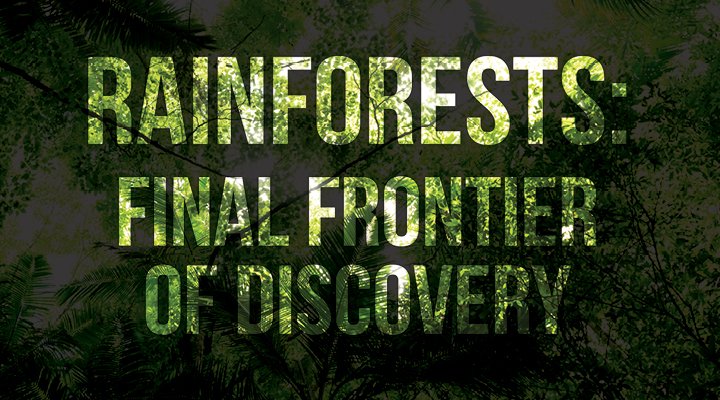Professor of Biology Thomas Walla, PhD, leads 25-person team competing in a global competition with a $10 million prize
Later this spring, Colorado Mesa University Professor of Biology Thomas Walla, PhD, will travel to Southeast Asia’s island country and city-state, Singapore, alongside his team to compete in the semifinals of a global competition. XPRIZE Rainforest is a five-year competition with the goal to enhance the world’s understanding of the rainforest ecosystem in order to protect it.
The XPRIZE Rainforest project started with more than 300 teams from around the globe all interested in competing. Around 60 teams went on to register and now only 15 teams remain, three of which are based in the U.S. One of those semifinalists is Team Waponi!, which is led by Walla and based in Grand Junction, Colorado.
According to Walla, the core purpose of the XPRIZE Foundation is to draw attention to and create solutions for problems from around the world through global competitions that entice some of the world’s most brilliant minds to participate.
In this specific competition, teams are tasked with developing a method of measuring the value of rainforests, which XPRIZE could then use to get others to invest in rainforest preservation policies and practices. Walla also sees the competition as a way to allow CMU to expand their biology program and to build and strengthen outside connections.
Walla has been with CMU for more than 20 years and takes pride in involving students in his projects in order to enhance their life experiences and help them build a deeper appreciation for the world that surrounds them.
“The best part of this project is being able to involve CMU students, and take their college experience to a whole new level by solving world problems,” said Walla, whose love for tropical ecology dates back to his first trip to Ecuador in 1991. Since then he has returned over 10 times leading tropical field biology courses to give his students the opportunity to live and work in the field alongside other professional biologists.
Walla is one of 25 individuals who make up Team Waponi!, which includes scientists from various U.S. universities and countries. Together, the team has developed a solution they call Limelight, which is a device that collects both auditory and visual data of diverse species that live in the rainforest. The device will be delivered into the rainforest via drone, attach itself to a tree and collect samples at different heights of the rainforest. Inside the device is a microphone and camera which will be used to locate and collect data on insects, mammals, birds and herpetofauna (reptiles and amphibians). The device then sends all collected data to a neural network system that will in turn identify and categorize the species into an extensive list.
Walla has recruited the help of other faculty members from across campus. The long list includes biology faculty members Johanna Varner, PhD, and Denita Weeks, PhD, and computer science faculty members Sherine Antoun, PhD, and Karl Castleton. CMU students have also gotten involved in this project, whether it’s taking pictures of insects or designing the understory exploratory vessel — the project is a true example of interdisciplinary work at CMU.
Angel Torres, an engineering student joined Team Waponi!
“Dr. Walla approached me at the beginning of the fall semester to weld an early design of the tree-hugger. After going over some design changes, I agreed to join the team and take on the tree-hugger portion of the project.”
When it came to designing the structure, it was a team effort.
“We began with identifying the need and goals of the project. We then assessed possible solutions and created a rough design and prototype for the most promising solution,” said Torres. “This process has resulted in seven different iterations for most of the parts. We are currently in the prototyping phase and expect to go through many more iterations and testing before the design is acceptable.”
A few months ago, Walla traveled to Singapore to observe the terrain in advance of the semifinals. He recognized key differences in tree species between the Amazon and Singapore rainforests and even joked that the team would now need to strengthen their Limelight device to withstand the native monkeys, something they hadn’t taken into consideration before. With a few key observations, Walla returned to the U.S. ready to perfect the device.
Team Waponi! will present their device and compete in Singapore for a finalist position in May 2023.
